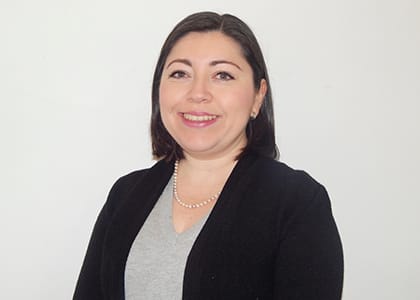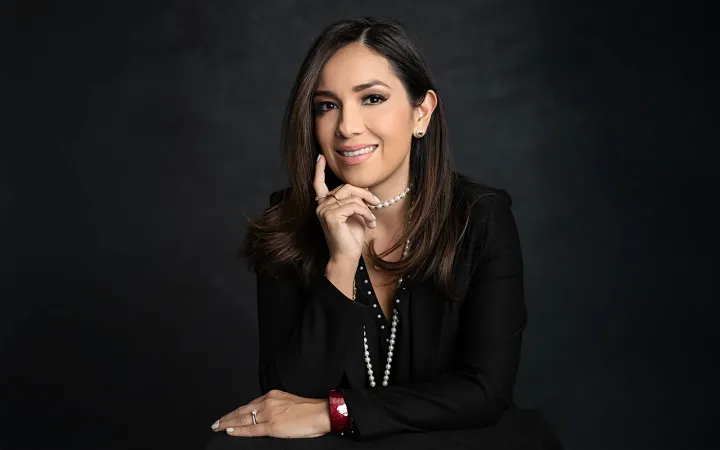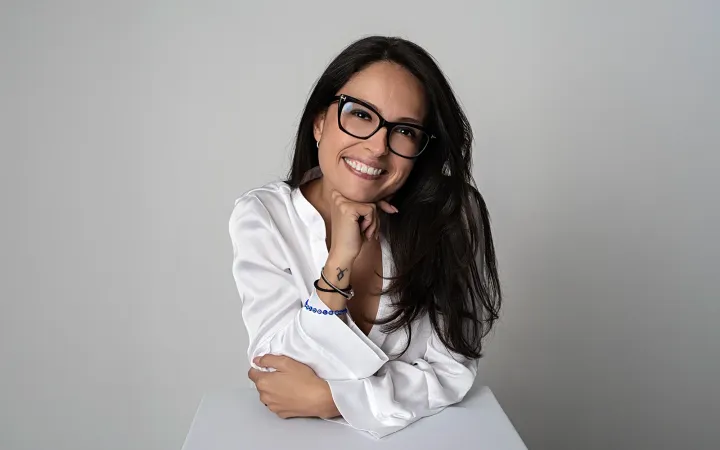
Por Dámaris Sosa

La Semana Mundial de Lactancia Materna 2024 nos recuerda la importancia de continuar promoviendo e impulsando la lactancia materna para que tanto las madres que así lo deseen como sus bebés ejerzan su derecho a amamantar y a ser alimentados en todas las situaciones.
Este año, el lema de la Semana es muy poderoso: Cerrando la brecha: apoyo a la lactancia materna en todas las situaciones. ¿Por qué considero que es poderoso? Porque la lactancia materna debería ser una actividad natural y, quizá, la más importante de la crianza, y debería poder ocurrir en cualquier espacio o situación. Sin embargo, un sinfín de barreras de la cotidianidad familiar, social y laboral continúan afectando la lactancia materna exclusiva.
En México, todavía 7 de cada 10 bebés menores de 6 meses no reciben leche materna como único alimento, tal como lo recomienda la Organización Mundial de la Salud (ENSANUT Continua 2021-2022). Esto significa que el 70% de las niñas y los niños menores de 6 meses en México se pierden la oportunidad de tomar de forma exclusiva el mejor alimento que pueden recibir para su edad: la leche materna.
¿Qué significa cerrar una brecha en la lactancia materna? Significa disminuir las barreras que obstaculizan a las madres para contar con toda la información, apoyo y recursos para alimentar con su propia leche a sus bebés de forma satisfactoria. Esto garantizaría que todas las mujeres que lo deseen puedan amamantar independientemente de su situación económica o sus circunstancias personales y laborales.
¿Cómo? Por ejemplo, con políticas públicas que apoyen y protejan el derecho a la lactancia materna, como la licencia de maternidad y el tiempo libre remunerado para la extracción de leche en el trabajo; con acciones de sensibilización a colegas de trabajo, familiares y personas en el entorno cercano de las mujeres para reducir el estigma de amamantar en público; con consejería en lactancia materna y adecuada transición a la alimentación complementaria; con profesionales de salud que puedan brindar apoyo respetuoso para el sostenimiento de la lactancia, o con la creación de espacios de apoyo en la red comunitaria en la que las mujeres se desempeñen.
Si bien sabemos qué se necesita para reducir brechas en lactancia materna, convertirlas en una realidad puede tomar muchos años. Por ejemplo, después de años de insistencia ante la Comisión de Atletas del Comité Olímpico Internacional, por primera vez una villa olímpica, la de París 2024, cuenta con un centro de cuidado infantil que está abierto diariamente de 9:00 a 21:00 horas para que las y los atletas olímpicos puedan disfrutar de ratos de desconexión y juego, apoyando los cuidados parentales de sus bebés.
Este logro, encabezado por Allyson Felix (atleta y activista estadounidense), también incluye otros apoyos para facilitar los cuidados, como que las deportistas que amamantan tengan pases especiales para que sus bebés puedan ingresar a la villa olímpica, que tengan las habitaciones más cercanas a la villa y que haya salas de lactancia para amamantar o extraerse la leche de forma cómoda y sin preocupaciones. ¿Quieres conocer cómo ha sido la experiencia de las atletas? Keesja Gofers (jugadora de waterpolo, Australia) lo ha compartido en redes sociales.
Otro ejemplo de políticas públicas que protegen el derecho a la lactancia materna, cuya materialización puede tomar tiempo y a la vez es indispensable para reducir brechas en lactancia materna, es la ampliación de la licencia de maternidad remunerada de 12 a 24 semanas, como parte de una visión integral de cuidados y de una agenda de reformas legislativas para incrementar las licencias parentales.
La Constitución Política de los Estados Unidos Mexicanos incluyó desde 1917 el permiso de maternidad de cuatro semanas. Años más tarde (1960 y 1974) se realizaron reformas que hasta hoy se encuentran vigentes: la licencia de maternidad remunerada de 12 semanas.
En la LXV Legislatura se han presentado seis iniciativas para ampliar la duración de la licencia de maternidad. Cinco de éstas se presentaron en la Cámara de Diputados y una en el Senado de la República. Cuatro de las seis iniciativas se encuentran con estatus pendiente en Comisiones de Cámara de origen: la diputada Margarita Zavala y el grupo parlamentario del Partido Acción Nacional han propuesto una extensión de la licencia de maternidad a 14 semanas; la senadora Verónica Delgadillo, de Movimiento Ciudadano, presentó una propuesta de ampliación a 16 semanas; la diputada Ivonne Cisneros, de Morena, propuso la ampliación a 18 semanas. Por su parte, la iniciativa de ampliación de la licencia de maternidad a 24 semanas, suscrita por más de 90 legisladores de la Coalición PAN, PRI y PRD, y la presentada por Movimiento Ciudadano fueron desechadas.
Pese a los profundos cambios que han ocurrido en la vida social y laboral de las familias mexicanas, la duración de la licencia de maternidad continúa siendo una asignatura pendiente para apoyar a las madres trabajadoras en México. Sin embargo, el periodo 2024-2030 podría lograr la ansiada ampliación de la licencia de maternidad y paternidad, puesto que ya forma parte del Eje Derechos de las Mujeres que, en el marco del Sistema de Cuidados, busca construir un modelo de bienestar más equitativo y justo que conllevaría a una redistribución de la carga de cuidados en México.
Cerrar las brechas en lactancia materna en México es posible. Conversaremos sobre esto en el 9º Foro Nacional de Lactancia Materna 2024, el próximo miércoles 11 de septiembre en la Universidad Iberoamericana. El llamado es para que desde diversos sectores se contribuya a generar un ambiente amigable para la lactancia materna, a partir de las recomendaciones derivadas del Índice País Amigo de la Lactancia Materna (BBF, por sus siglas en inglés) que se presentarán en el Foro. No te lo pierdas, conoce todos los detalles aquí.
*Dámaris Sosa de Antuñano es coordinadora de Incidencia Federal del Pacto por la Primera Infancia. Es cirujano dentista por la Universidad Veracruzana, maestra en Ciencias de la Salud, con campo de estudios principal en Epidemiología por la UNAM, y candidata a doctora en Administración Pública por el INAP. Por más de una década ha trabajado en la Administración Pública Federal y tiene experiencia en evaluación de servicios de salud, salud pública, políticas públicas de salud dirigidas a la primera infancia y personas en situación de vulnerabilidad. Autora de diversas publicaciones y ponente en foros nacionales e internacionales. Disfruta del bádminton, la lectura, colorear, viajar y salir a caminar. En el Pacto por la Primera Infancia contribuye para lograr que las políticas públicas dirigidas a las niñas y niños menores de 6 años sean una prioridad nacional. damaris.sosa@pactoprimerainfancia.org.mx
Las opiniones expresadas son responsabilidad de sus autoras y son absolutamente independientes a la postura y línea editorial de Opinión 51.





Comments ()